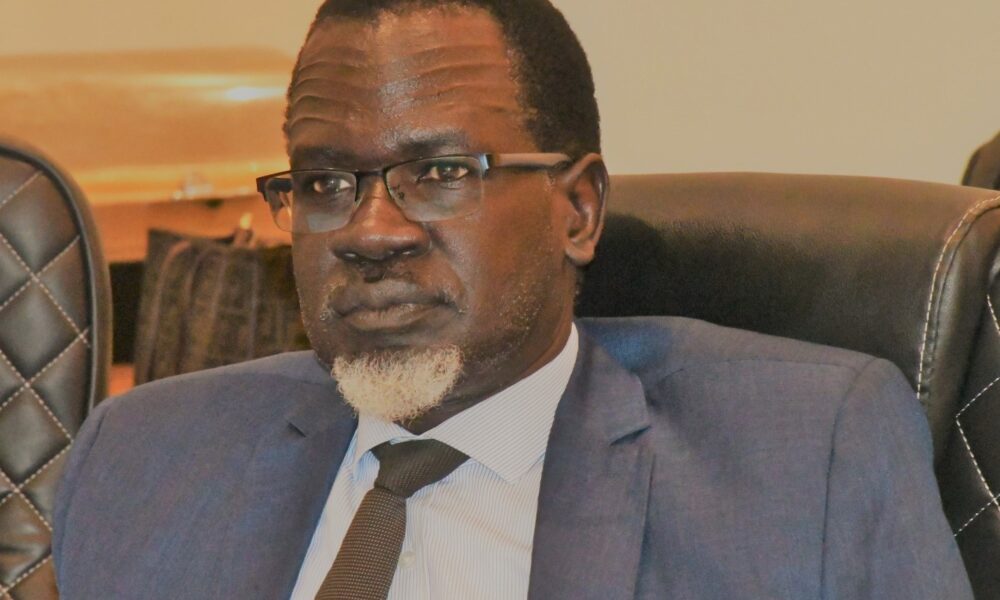By Bida Elly David
Chairperson of the National Constitutional Review Commission (NCRC) expresses deep concern over the delays in budget allocation, saying it has emerged as an obstacle to the constitutional-making process.
Riang Yer Zuor voiced his concerns during an orientation workshop organized for the newly appointed members of the NCRC.
“As soon as the budget is approved, we begin to go out for civic education campaigns, educating the citizens on a number of constitutional issues. After that, we will go consult with them to get their views,” he said.
The chair didn’t disclose how much allocation they expect to kick-start their tasks, only said that they would first need to train their members while waiting for the budget.
Speaking to the media on Monday, Mr. Yer said their mandate is to ensure in-depth induction of the new members of the commission for efficient commencement of work and the completion of the process on time.
“The purpose of the workshop is to first bring the members of the commission together for the first time to carry out the official finishing of the constitution,” he noted.
He added that the official mandate of the commission is to review, revise, and adopt the internal documents or instruments of the commission such that they are operational.
He also stated that they have not yet been given a specific timeframe for accomplishing the document, even though the roadmap is soon reaching its deadline.
Mr. Yer underscored the importance of first preparing the team as the budget awaits approval.
“One of the internal documents that we are yet to review and adopt is our work plan; in that work plan, there is a time frame with which we have to finish,” he said.
As far as elections are concerned, the chair of the commission stated that they are yet to begin reviewing the document for the first time since their formation.
“The proposal we have done is in regards to the beginning and completion of the constitutional-making process that will come in a number of stages,” he said.
Mr. Yer noted that the commission is going to undertake a public awareness programme to understand the process of marking their first stage of work.
“The first stage will involve the whole public; we will conduct civic education and public consultations on certain constitutional issues; this will be when the first draft of the constitution will be made,” he noted.
The NCRC boss further said the second stage will involve a conference where deliberations on the constitutional draft will be done for its approval.
“The national constitutional conference will first deliberate on the draft constitutional text, which is the foreign version, before its third stage,” he continued.
Meanwhile, Edmund Yakani, CEPO’s executive director, told the No. 1 Citizen Daily Newspaper that he expects the commission’s leadership to have a clear action plan that defines civic engagement in constitutional drafting activities.
“We need to see an important civic and political space for civil society, citizens, and political parties engaging them without any restriction,” he demanded.
He argued that it is the law of the land that requires people to have freedom of assembly, association, and speech.
Yakani urged the government to immediately fund the commission to perform their task to meet the deadline of the roadmap before the elections.
“We can’t have a constitution that’s foreign-funded; it has to be government-funded, and we hope the government will finance it,” he said.
The activist underpinned that constitution-making is one of the preconditions of the elections, saying if the politicians want the elections, this commission has to function quickly, which means it requires resources.
Mr. Yakani added that the constitution addresses one of the root causes of the conflict, urging it to be taken seriously.
“My worry is that the political elites may interfere with the definition of the root causes of the conflict when we are going through the constitutional making process,” he expressed.
He warned the government against political interference in the constitutional-making process, saying it should be left to only the committee.




